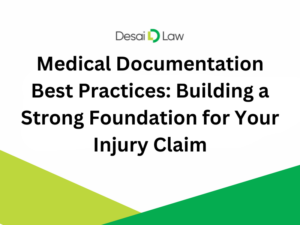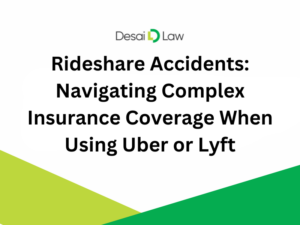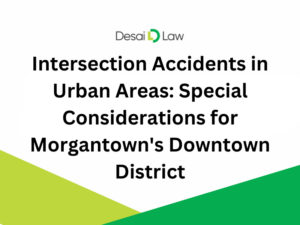After a car accident, you might think that you can save some money by settling your accident case yourself, without going to the extra trouble and expense of hiring an attorney. Contrary to what some think, that is often not the case. In most cases, those who settle cases themselves end up leaving money on the table.
For instance, some fail to demand enough to cover their medical expenses, especially those that they will incur in cases of long-term or permanent disabilities. Relatedly, others don’t realize the full scope of the expenses and impacts for which they may demand compensation. More often than not, it’s a good idea to hire an attorney in a car accident case. Here’s why.
Why Attorneys Tend to Get More in Settlement Negotiations
Attorneys tend to get more for their car accident clients in settlement negotiations with insurance companies. Attorneys know the game, and insurance companies know that they cannot pull the wool over an attorney’s eyes, especially an attorney who has many years of experience with negotiating and litigating car accidents. They appreciate that the attorney knows the law and will call them out on any low-ball offer.
Furthermore, insurance companies know that, if pushed too far, an attorney will take the case to litigation. The insurance company does not want to litigate because it costs them more money, even if the insurance company has in-house counsel. When facing a pro se injury victim (the legal term for self-represented), an insurance company might test the limits, as many such victims will not realize the full extent of their rights, recognize a low offer, or pose a significant threat in litigation due to a lack of familiarity with the law.
Speaking to an Insurance Company Representative
While it’s best to have an attorney negotiate on your behalf, you probably should contact the insurance company to let it know that you were in a car accident as soon as possible, which may be before you’ve had a chance to retain an attorney.
When calling the insurance company, only disclose:
- Your name and contact information
- The other driver’s name, contact information, and policy number, if you have it
- Your attorney’s name and contact information
- The date and location of the accident
Insurance companies train their representatives to get you to talk and say things that harm your case. They may take something you say out of context to try to blame you for the accident and deny or minimize your claim.
Car accident lawyers know with this tactic, and will recognize if an insurance attorney is pining for an admission or disclosure of information that could harm your case, so always let the attorney give the insurance company any other information related to the accident.
When You Should Contact a Car Accident Lawyer
Contact a car accident lawyer as soon as possible after a car accident. The sooner you contact an attorney, the more apt you will remember what happened in the accident. Remembering as much as possible can help your lawyer understand the accident, find potentially liable parties, and preserve available evidence.
If you wait for even a month, you may forget important events that could help your case. Evidence tends to fade after time. Even the weather may erase evidence at the scene. Witnesses become harder to remember and track down for statements. In more nefarious scenarios, defendants could destroy evidence so that they can lie about what happened.
Hiring an attorney at the initial negotiation stage has the added advantage that, should you have to quit settlement negotiations and move on to litigation, your attorney is already familiar with your case and has a lot of the information they need to properly represent you in court.
Recovering Compensation in a Car Accident Case
Many car accident victims don’t realize the full extent of expenses and impacts they can demand from a defendant and their insurer. This is another good reason to let an attorney handle your case. Depending on the circumstances, you could recover a range of damages, including two types of compensatory damages and punitive damages. Keep in mind, these are just examples, and you should consult with an attorney to determine the full scope of damages to which you may recover in your case.
Compensatory Damages
You could recover two types of compensatory damages, depending on the injuries and impacts you suffered in a car accident. The court orders a defendant to pay compensatory damages in an attempt to make you whole again. While the money does not bring a loved one back or take away your injuries, it does relieve the financial stress of medical bills and loss of work and income.
The first kind of compensatory damages, typically referred to as economic damages, come with a hard monetary value.
They include:
- Past medical expenses, to cover accident-related medical expenses incurred before a settlement or court award
- Future medical expenses, to cover accident-related medical expenses you anticipate to incur after a settlement or a court award
- Past lost wages, for wages you lose from being out of work due to your car accident injuries, from the time of the accident up to the settlement or court award
- Future lost wages, for wages you will lose following a settlement or court award because accident injuries prevent you from working, or prevent you from working in a job making as much money
- Replacement or repair of destroyed or damaged personal property
- Funeral, burial, or cremation expenses if you lost a loved one in a car accident
General damages, usually referred to as non-economic damages, do not have an objective monetary value. The court usually orders the defendant to pay non-economic damages if your injuries cause long-term or permanent disabilities, or if the plaintiff is a family who lost a loved one to the car accident.
Non-economic damages include:
- Pain and suffering and emotional distress of the accident victim
- The emotional distress of a family who lost a loved one to the car accident
- Loss of quality of life
- Loss of companionship, if a victim can longer enjoy activities and events with their family, such as playing ball with a kid or going on family camping trips
- Loss of consortium, if a victim can no longer have a physical relationship with their spouse
- Loss of use of a body part, such as a foot or an arm.
- Loss of use of a bodily function, such as eyesight
- Inconvenience, if a victim must hire someone to do chores they normally would, including grocery shopping, lawn maintenance, home maintenance, and home repairs.
- Extra compensation for amputation.
- Extra compensation for excessive scarring and/or disfigurement.
Punitive Damages
A court only orders punitive damages if the defendant’s actions or inactions were grossly negligent or intentional. This award punishes the defendant and deters them and society from engaging in such egregious conduct in the future.
Only after a car accident lawyer evaluates your case will you know which damages to seek, and in what amount.





